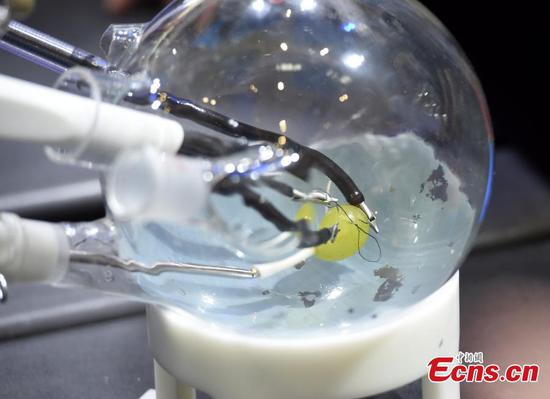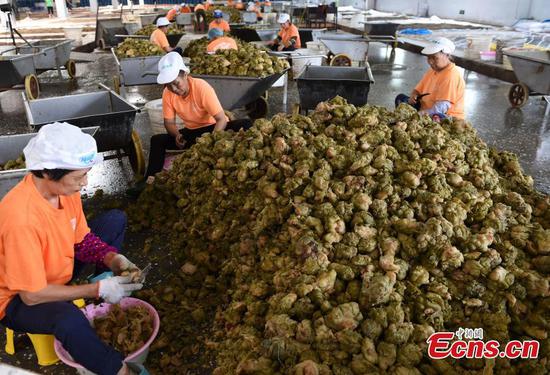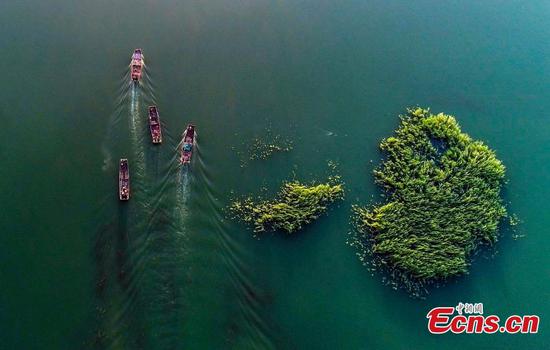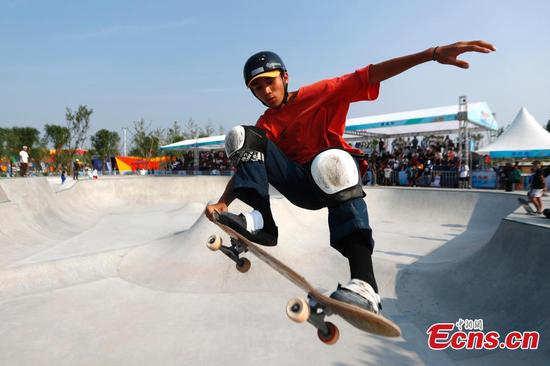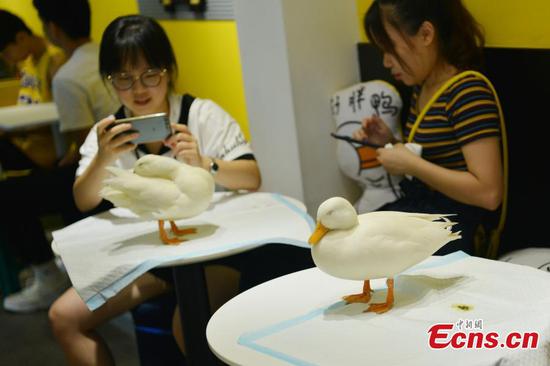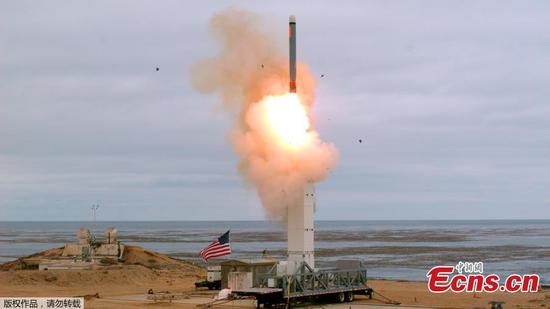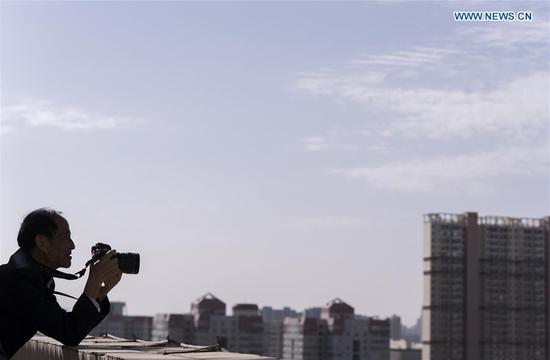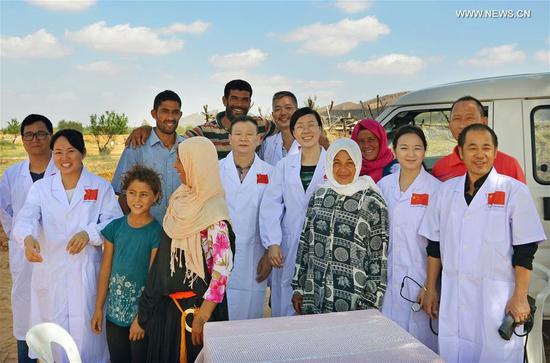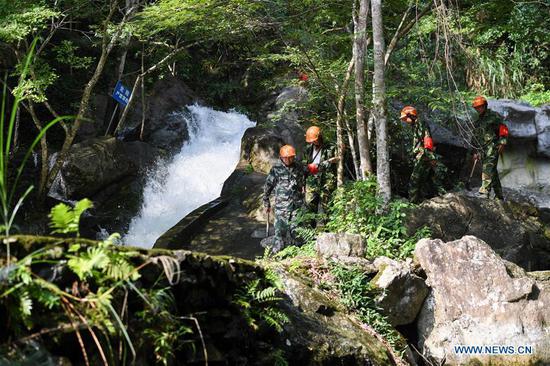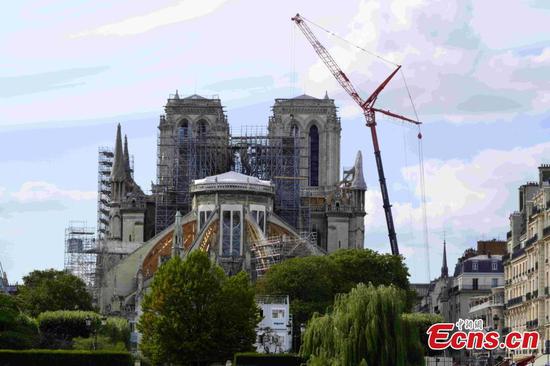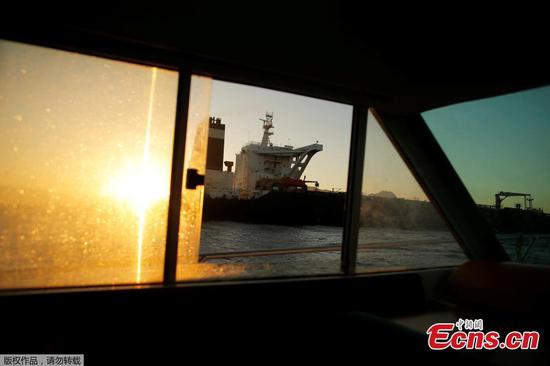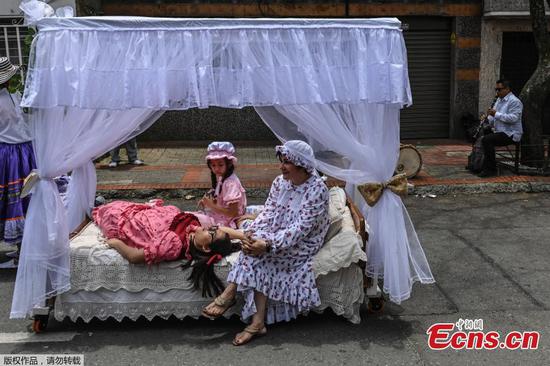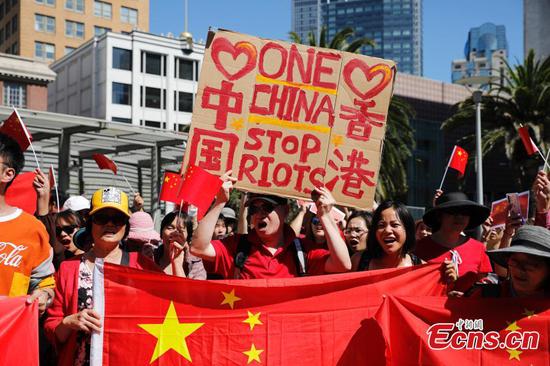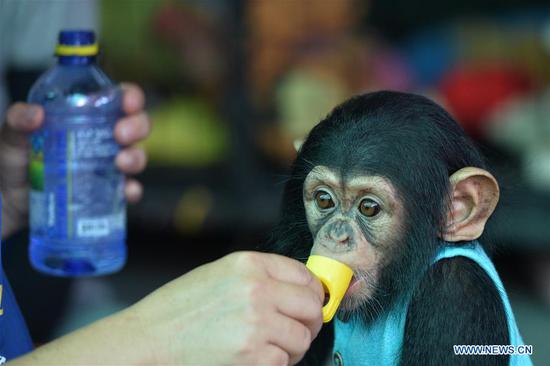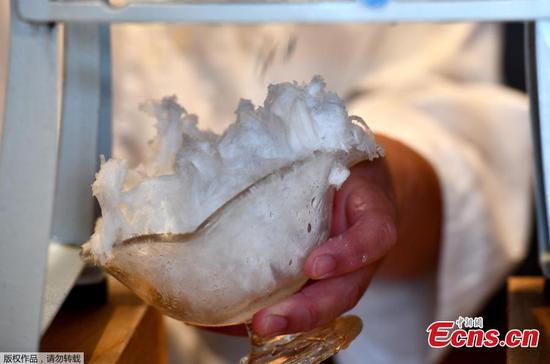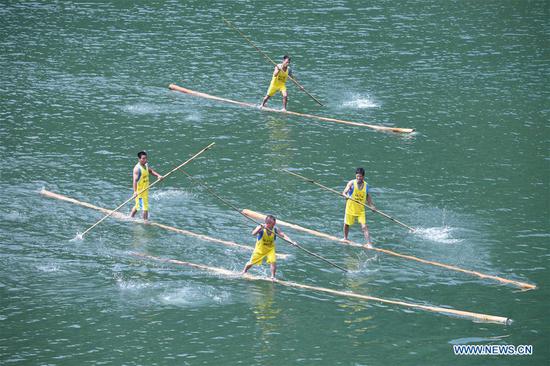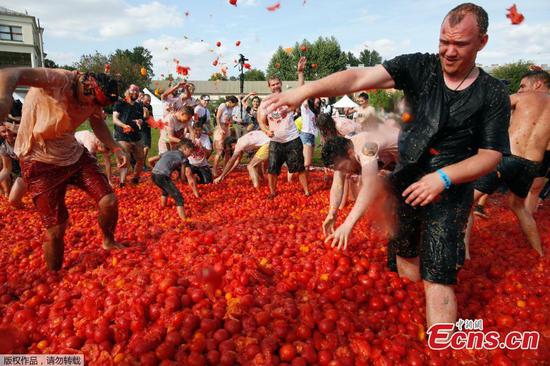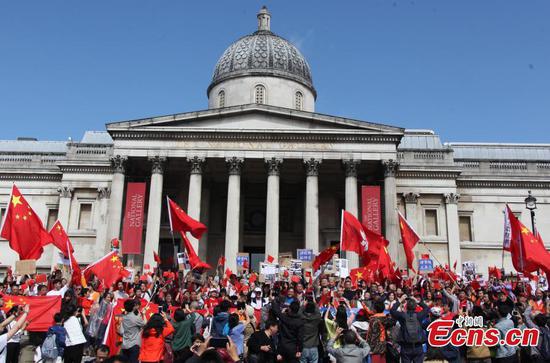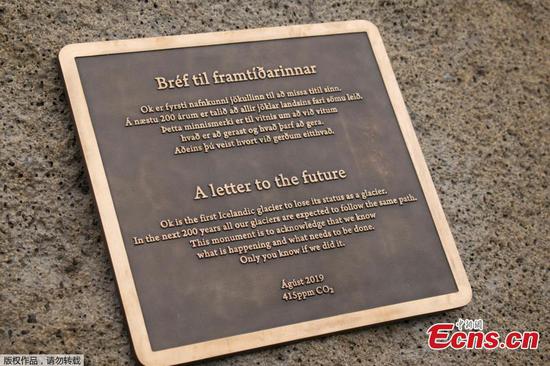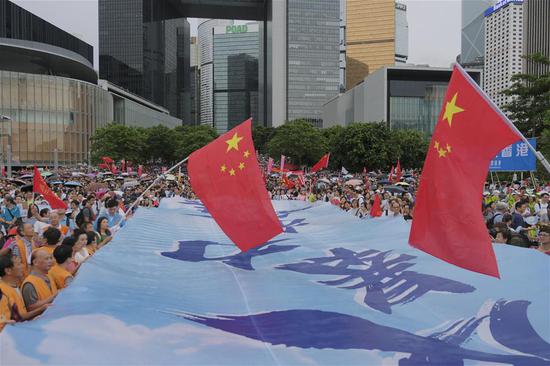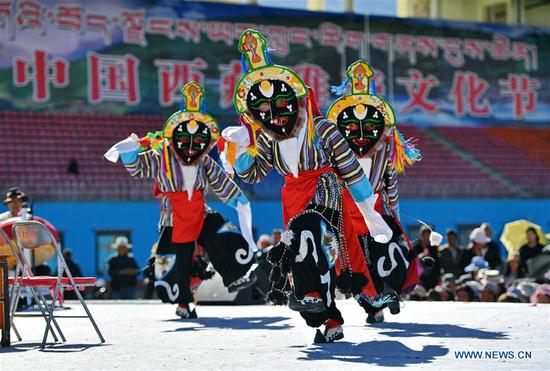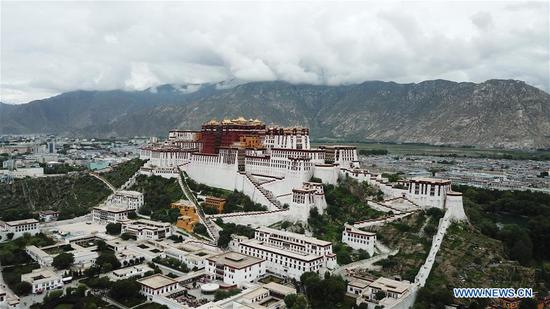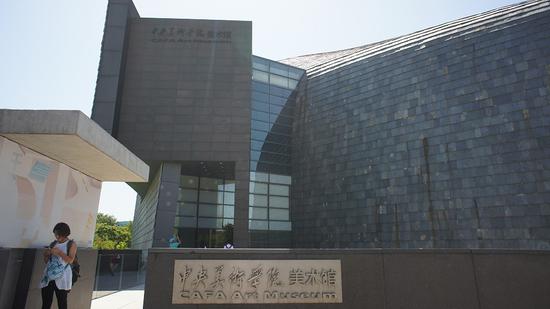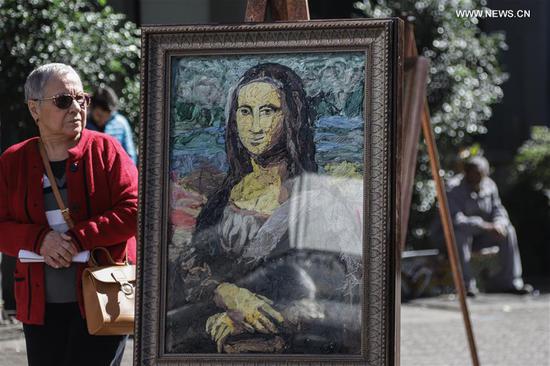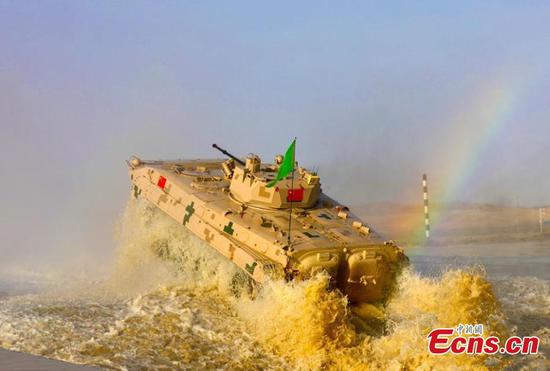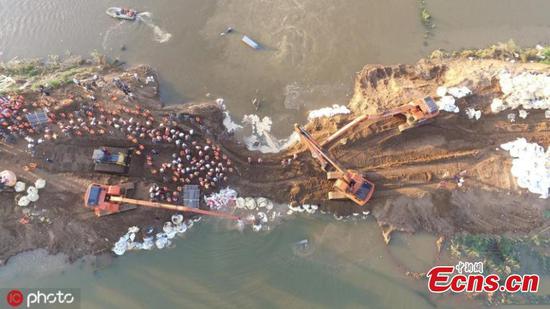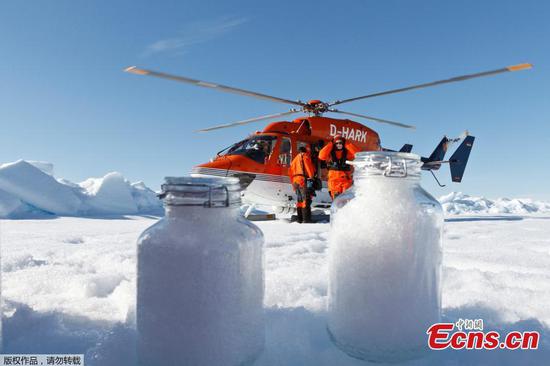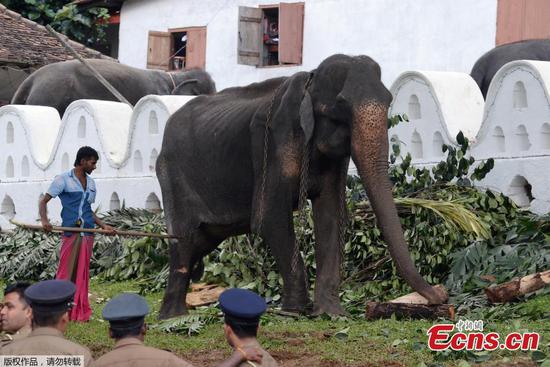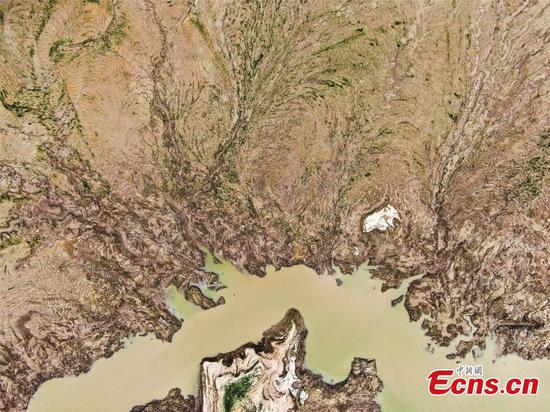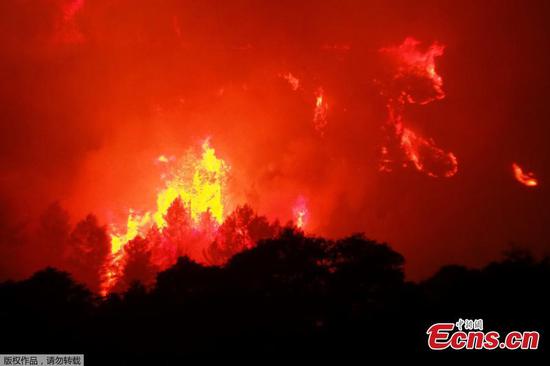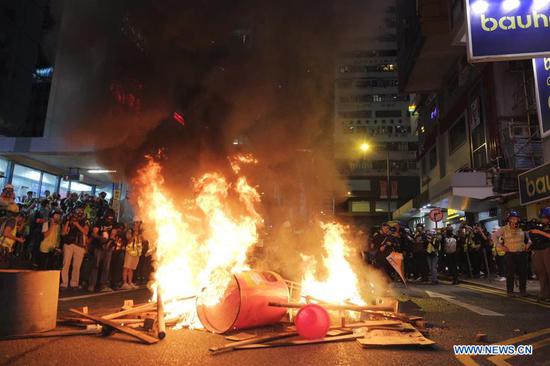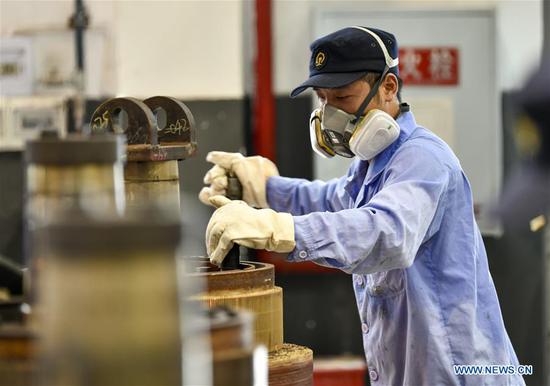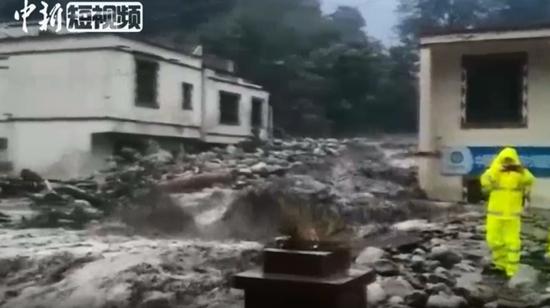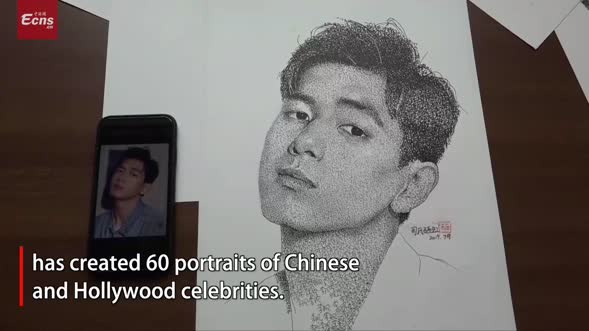Frontline Hong Kong police officers said they have been under immense pressure.
Chief Superintendent David Jordan, who is British, said the situation on the front line was the most dangerous that he has faced in over 25 years, due to the level of aggression.
"We have been incredibly restrained, and also we are only reactive. I strongly feel that the role and the actions of the Hong Kong police have been as tolerant as any other police force on the planet would have been," he said.
On Aug. 13, Pelosi called for the passing of a so-called Hong Kong Human Rights and Democracy Act to further meddle in Hong Kong affairs.
As she posted the statement, radical protesters plunged the Hong Kong International Airport into chaos on Aug. 13 and 14. Protesters harassed passengers and inflicted severe physical harm to two mainland residents. These extreme behaviors have been widely condemned by the public.
As another piece of evidence of meddling, Julie Eadeh, a diplomat in the U.S. Consulate General in Hong Kong, met with "Hong Kong independence" activists including Joshua Wong Chi-fung and Nathan Law Kwun-chung on Aug. 8.
After their meeting, these activists said they discussed using a U.S. bill to sanction Hong Kong and urging the United States to stop selling equipment to the Hong Kong police.
During the protests, radical protesters waved British and U.S. flags when they vandalized road infrastructure and attacked police on duty.

Violent radicals set fires after blocking a road in Causeway Bay, south China's Hong Kong, Aug. 4, 2019. (Xinhua)
On Aug. 13, the European External Action Service issued a statement on the situation in Hong Kong. On Aug. 17, EU's High Representative for Foreign Affairs and Security Policy Federica Mogherini and Canadian Foreign Minister Chrystia Freeland issued a joint statement on Hong Kong.
Both statements, misleading and incorrect, have been refuted by the Chinese side.
These meetings and words are "irresponsible remarks" and "wrong signals" to fan protests and pressure the government, observers in Hong Kong said.
"Whenever the Hong Kong opposition seemed weak, officials and advocates in the United States jumped out to comment and called on them to continue," said Chan Yung, an HKSAR deputy to the National People's Congress and vice-chairperson of Democratic Alliance for the Betterment and Progress of Hong Kong.
"The intervention of external forces has only complicated matters and made the situation precarious. The United States wants to use Hong Kong issues as a bargaining chip with China. That plan is not going to work," he said.
Observers said what has happened in Hong Kong bears the feature of a color revolution that is aimed at overthrowing the government.

Violent radicals block a passage at Hong Kong International Airport in south China's Hong Kong, Aug. 13, 2019. (Xinhua)
"It is an organized and coordinated version of a color revolution that is aimed to snatch the governance authority of Hong Kong through resorting to violence," said Yiu Chi-Shing, chairman of Hong Kong Association for Promotion of Peaceful Reunification of China.
"Look at the regions hurt by color revolutions, they left nothing but chaos. We should prevent Hong Kong from falling into the trap," he said.
Begging for foreign influence and intervention is a dangerous move that challenges the red line of the "one country, two systems" principle, observers and authorities said.
"I advise those politicians who speak beautiful words but spread seeds of social hatred and discord to be responsible and clear-headed. Their tricks will never succeed," said Yang Guang, spokesperson for the Hong Kong and Macao Affairs Office of the State Council.









